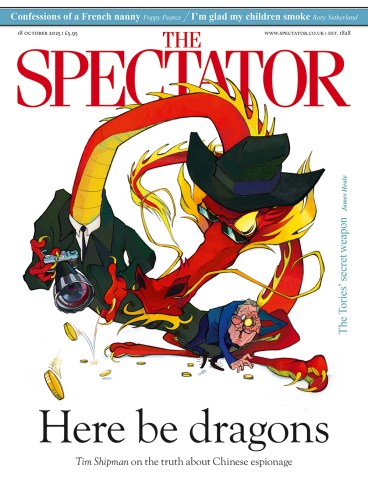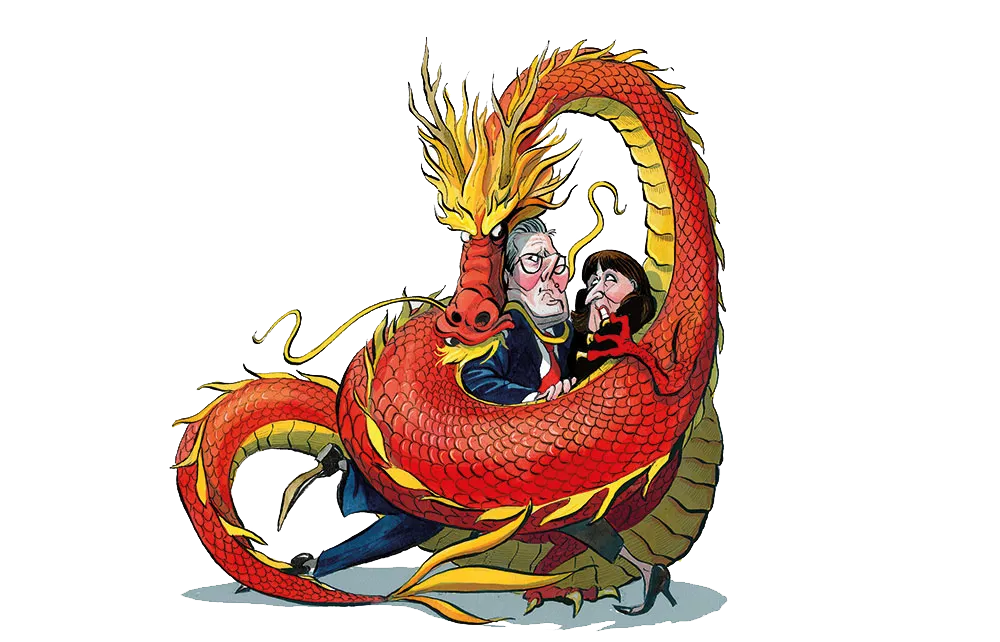
Poor old Hamas, losing all those dead Jews. The BBC reports that Hamas ‘could not locate the remaining hostages’ bodies’, of which there are 28. One can understand the problem. When you have been starving and torturing so many for so long, you may not necessarily remember where you left them when they died. In the words of the Balliol student who called for it this week, you have ‘put the Zios in the ground’. Why do more? Don’t your critics know there is (or was) a war on? Sniping westerners and Zio-sympathisers might wonder why, if Hamas did not know where the bodies were, they still used them as negotiating tools, but that is to miss the main point which, again according to the BBC, is that hostage families have ‘accused Israel of betrayal’ because the bodies have not turned up. Another problem besets Hamas. Because of ‘the void left by Israel moving out’ (BBC again), they have their work cut out to deal with the various ‘clans’ that are popping up to oppose them. They are doing their best by capturing some of the clansmen, blindfolding them, lining them up in the street and shooting them. So please, let them get on with restoring law and order.
On Monday, I sat in the Commons gallery to watch the government’s statement about the collapse of the China spying case. It was interesting theatre. Although there are about 400 Labour MPs, perhaps 30 of them were in the Chamber, and only four or five ministers were on the front bench. They looked grey-faced with exhaustion and unease. By contrast, the Tory benches were about as full as they can be, given their puny numbers. The front bench was crammed. Before the statement, Mr Speaker Hoyle jumped up to give his own views on behalf of parliament. He was very angry, he said, because ‘parliament is being spied on’ and yet the case had not gone forward. I wondered if his intervention was wise, since it might prejudice any eventual trial. But his point was right. The question in these situations is not so much exactly what spies steal but the fact that they can infiltrate the body we have elected. Parliament is not an unruly branch of the civil service, but the assembly that makes our laws. The implication of the government’s failure to give the Director of Public Prosecutions what he needed to go to court is that it is indifferent to parliament and very concerned for the tender feelings of China.
Poor Dan Jarvis, the security minister, was visibly miserable repeating the shockingly thin government claim that it had not been able to help the DPP because the state of the law under the previous Conservative administration, when the alleged offences were committed, was that the government had not complied with the demand of the 1911 Official Secrets Act that a country must be officially recognised as an ‘enemy’ before action can be taken. This is not what the Act requires. What Mr Jarvis calls its ‘archaic’ language is clear, non-technical and needs no official ‘designation’ of enemy status. ‘Enemy’ here simply means hostile acts threatening national security. Our intelligence services speak constantly of threats of this sort. There is a body called the Joint State Threats Assessment Team, and China is its biggest subject. The term Advanced Persistent Threat (APT) is used in relation to cyber threat. UK-China Transparency publishes a list of about a dozen officially admitted big APTs coming from China in recent years. Yet the government acts as if they don’t exist.
All this is politically serious. A factor in bringing down Justin Trudeau’s government in Canada last January was the case of a candidate for his Liberal party, Han Dong. Dong was elected to parliament and it was shown that Chinese Communist party efforts had helped corrupt the poll. It was also shown that Trudeau had known about Dong’s China links after he was selected as a candidate, but allowed them to be concealed. When the story leaked, Trudeau accused Canada’s intelligence services of trying to bring down the elected government. He fell. Over here, there are a lot of intelligence and security officials who feel bruised over China by the Downing Street axis of Sir Keir Starmer, Jonathan Powell and the Tony Blair Institute for Global Change. Even if it never reaches court, the Chris Cash/Christopher Berry case has further to run. (Cash and Berry deny the allegations.)
Following my recent mention of place names, field names and their meanings (Notes, 4 October), I heard from a learned Irish friend, John Redmond. He tells me that there is an entire onomastic (look it up) Irish oral and later literary tradition of place name lore, which is known as Dindsenchas. Most of it takes poetic form. He adds, which I did not know, that my great-grandfather, Norman Moore, was a pioneering scholar and translator in the field. Given the current interest in place, rootedness and identity, I feel the genre is due for a revival, and not only in Ireland. Great poets – Eliot, Hardy, David Jones, Betjeman – know how potent place names are in verse. The Psalms resonate with them (‘Moab shall be my washpot; and over Edom will I cast out my shoe’). Place names last longer than almost anything else in language, and therefore contain greater riches than most ordinary words.
This column’s hero among beleaguered hereditary peers in the House of Lords is Viscount Stansgate, who is 25 per cent of Labour’s hereditary numbers, and about 75 per cent of their activity. He is the son of Tony Benn, who famously disclaimed the title for himself, is an expert on science and a deputy speaker. Lord Stansgate is a substantial figure. His many admirers refer to him as Big Benn. Imagine our disquiet, then, that he has now taken enough of the relevant drugs – Mounjaro, perhaps, or Ozempic – that his body lives in reduced circumstances. If he goes on like this, he will become Little Benn (a clock of that name stands in Wilton Road), and the Lords will feel still further diminished.









Comments